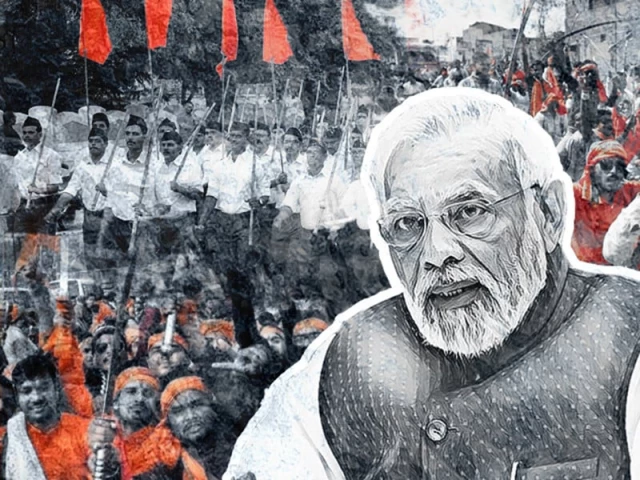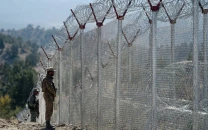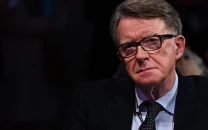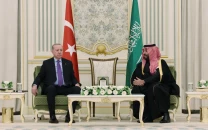EU warned over India’s authoritarian drift
Rights group cautions against overlooking the country’s deteriorating domestic landscape

As the European Union moves to court New Delhi with its “New Strategic EU–India Agenda”, Human Rights Watch has raised the alarm again, reminding Brussels not to hand Prime Minister Narendra Modi a free pass on India’s ‘authoritarian drift’. The advocacy group warns that behind the language of partnership lies a government that has systematically eroded democratic norms.
Across the entire 19-page document, human rights are mentioned only three times — each in the vaguest, most diplomatic manner, and never in relation to India’s deteriorating domestic landscape. The EU hints at “shared values” and multilateral cooperation, but ignores the uncomfortable truth of minority persecution, civic repression and the everyday silencing of critical voices.
In its commentary, issued as President Ursula von der Leyen presses her pivot to New Delhi, Human Rights Watch (HRW) calls out Brussels for its eagerness to crown the country a “like-minded and trusted partner,” while airbrushing its mounting rights abuses from the agenda.
Strengthening EU-India trade, economic and political ties has long been among Ursula von der Leyen’s top priorities. According to the New York-based advocacy group, this push has come at a price – an imposed silence in Brussels over India’s authoritarian slide, a reality that HRW observes is well understood even within the EU’s own institutions.
“Von der Leyen is personally invested in pursuing closer trade and political ties with India. She’s made that clear in her political guidelines, as she’s made it clear to EU staff that no criticism of India’s rights record should be voiced in the process,” Claudio Francavilla, Associate EU Director at HRW, told The Express Tribune.
Under Modi and his Hindu nationalist Bharatiya Janata Party (BJP), HRW points out, violence and discrimination against religious minorities have been normalised. The rights group has documented unlawful expulsions and the demolition of homes and businesses on religious grounds, alongside assaults, arbitrary arrests, and the misuse of counterterrorism laws to target civil society and diaspora critics. It also cites threats to independent media, sweeping internet shutdowns aimed at quashing protests, and a climate of fear that haunts human rights defenders, journalists and activists. India’s own national human rights commission, HRW cautions, is now at risk of being downgraded internationally.
In its commentary, HRW urges EU leaders to “seriously reflect” on the long-term consequences of granting Modi a free pass. Turning a blind eye to India’s deepening authoritarian turn, it warns, is difficult to square with Brussels’ own ambition of prising Modi away from Moscow and Beijing.
Francavilla argued that this silence amounted to complicity. “If India is the world’s largest democracy, it should act as such. The EU knows that that’s less and less the case, yet has decided to remain silent as Indian authorities implement increasingly abusive policies that are at odds with democratic values,” he said. Silence, he added, was a form of impunity — and impunity fuels abuses. “When silence is imposed by fear of prickly reactions or worse, that should raise an alarm -- democracies should embrace scrutiny, not fear it.”
Francavilla placed India within a wider pattern of EU double standards. “India is far from the only government whose abuses the EU overlooks in pursuit of economic, geopolitical or migration gains,” he said, whose abuses the EU overlooks in pursuit of economic, geopolitical or migration gains,” he said — a pattern that, he argued, has only sharpened under von der Leyen’s tenure. “This weakens the credibility of EU action elsewhere.”
Supporting human rights only when it comes “cheap,” Francavilla warned, sets in motion a race to the bottom — eroding the entire system and, ultimately, leaving victims of serious abuses everywhere without recourse.
This is not the first time HRW has taken aim at von der Leyen’s approach toward India. Earlier this year, the EU Commission led a high-level delegation to New Delhi to pave the way for a stronger partnership. In a letter to the College of Commissioners and von der Leyen, a dozen rights organisations — including Amnesty International, HRW, the Committee to Protect Journalists, Christian Solidarity Worldwide, and Reporters Without Borders — expressed concern over Modi’s Hindu nationalist government’s erosion of democratic institutions, suppression of dissent, and persecution of minorities with growing impunity. But von der Leyen ignored the caution and went ahead with her trip without much concern about the democratic backsliding.
Francavilla described the EU’s engagement with India as timid and half-hearted. “The EU is still active in trying to support Indian civil society, it does intervene behind the scene – yet indeed only behind the scene, timidly, failing the expectations one would have when reading about the EU’s treaties, human rights action plans, and grandiose speeches and claims,” he said.
Asked whether EU member states had come to a consensus on how to deal with India, Francavilla pointed to trade as a file the Commission leads on with a mandate given by member states. “If one looks at how the leaders of France, Germany, Italy and others behave with Modi, the approach von der Leyen has taken doesn’t look like one they would be bothered by,” he explained. India, he stressed, is a huge market, set to only grow in the coming years and decades. “What they all seem oblivious to is what kind of India they will deal with in time, if they don’t intervene as democratic values erode.”
Speaking to the wider strategic backdrop, Francavilla was blunt: “Geopolitics are not within our mandate, yet are part of the context in which we operate. And what many analysts have flagged is that the idea of bringing India into this or that camp is wishful thinking: everyone is courting India, and India is happy to be courted by anyone, with no need to choose.”
He cautioned that “what Europe is failing to realise here is that if it just sits and watches as India becomes more and more authoritarian, it will eventually come more ‘natural’ for it to side with fellow authoritarians than with democracies.”



















COMMENTS
Comments are moderated and generally will be posted if they are on-topic and not abusive.
For more information, please see our Comments FAQ